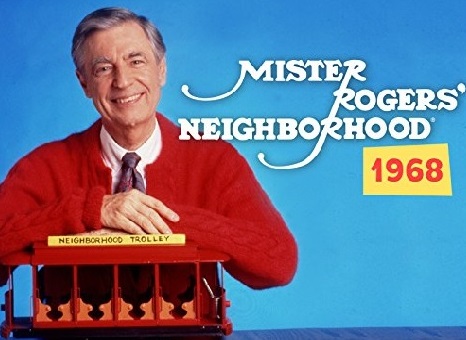In the landscape of children’s television, one show stands out as a beacon of kindness, empathy, and understanding: “Mister Rogers’ Neighborhood.” For over three decades, Fred Rogers invited us into his neighborhood, not just through the doors of a simple set, but into a world where compassion reigned supreme. With its gentle pace, soothing melodies, and profound messages, the show remains a timeless testament to the power of goodness in a sometimes-chaotic world.
At the heart of “Mister Rogers’ Neighborhood” was its creator and host, Fred Rogers. With his signature cardigan sweater, comfortable sneakers, and warm smile, he became an icon of children’s television. What set Mister Rogers apart was his genuine love for children and his unwavering belief in their inherent worth. He saw each child as special, deserving of respect and understanding. His famous quote, “You’ve made this day a special day, by just your being you,” epitomizes his philosophy.
The show was not flashy or fast-paced like many others of its time. Instead, it was deliberate, intentional, and deeply meaningful. Mister Rogers took the time to explore important themes like friendship, emotions, and even difficult topics like death and divorce. He wasn’t afraid to tackle tough subjects, always approaching them with honesty and empathy.
One of the most beloved aspects of the show was its Neighborhood of Make-Believe. Through simple puppetry and storytelling, Mister Rogers and his puppet friends like Daniel Tiger, King Friday XIII, and Lady Elaine Fairchild brought to life a world where imagination knew no bounds. In this neighborhood, problems were solved through kindness and understanding, teaching children valuable lessons about empathy and cooperation.
Music was another integral part of the show. Mister Rogers was a talented musician, and he used music as a way to connect with his audience. Whether he was singing the iconic theme song, “Won’t You Be My Neighbor?” or sharing songs about feelings or everyday activities, music was a powerful tool for conveying messages and emotions.
Perhaps one of the most poignant moments of the show’s history was Mister Rogers’ testimony before the U.S. Senate Subcommittee on Communications in 1969. Facing potential budget cuts to public broadcasting, Mister Rogers delivered a heartfelt plea for the importance of children’s television. In his calm, gentle manner, he spoke of the need for programming that nurtured children’s emotional and intellectual growth. His words had a profound impact, leading to increased funding for PBS.
The legacy of “Mister Rogers’ Neighborhood” extends far beyond its original run. Generations of children grew up watching the show, learning valuable lessons about kindness, empathy, and self-worth. Even today, Mister Rogers’ teachings continue to resonate with both children and adults alike. The show has inspired books, documentaries, and even a feature film starring Tom Hanks as Fred Rogers.
In a world that can often feel overwhelming and divisive, the enduring appeal of “Mister Rogers’ Neighborhood” reminds us of the simple yet profound power of kindness. Fred Rogers’ gentle spirit lives on in the hearts of those who were touched by his show, serving as a reminder to always look for the helpers and to be the best neighbors we can be. As Mister Rogers himself said, “I hope you’re proud of yourself for the times you’ve said ‘yes,’ when all it meant was extra work for you and was seemingly helpful only to someone else.” In Mister Rogers’ Neighborhood, we all found a place where we belonged, where kindness was king, and where we were all valued just the way we are.


Get involved!
Comments